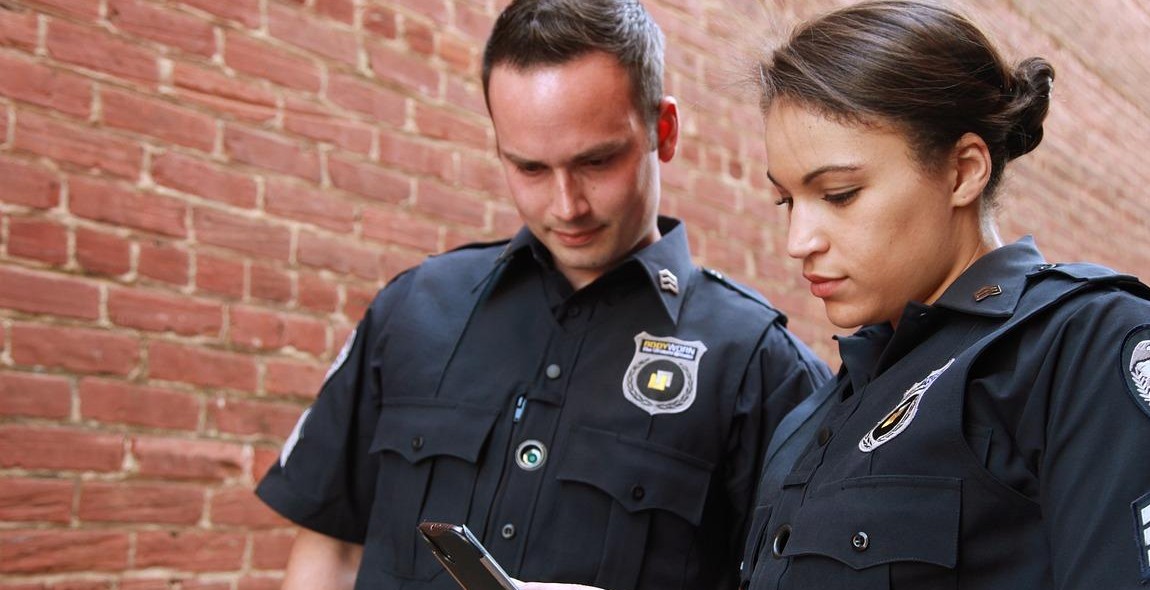How to Conduct Effective Police Patrols: Observational Skills and Incident Response
As a seasoned law enforcement professional, I have had years of experience conducting effective police patrols. One of the key skills required to excel in this field is the ability to observe and identify potential incidents before they escalate into more serious situations. This requires a keen eye for detail and the ability to think quickly on your feet.
In this article, I will share some of the strategies and techniques I have learned over the years to conduct effective police patrols. From understanding the importance of situational awareness to knowing how to respond to incidents in a timely and appropriate manner, there are many factors that go into ensuring the safety of the community you serve.
The Importance of Observational Skills
- Recognizing potential threats
- Identifying suspicious behavior
- Noticing changes in the environment
- Being aware of your surroundings
By honing your observational skills, you can become a more effective police officer and better protect the community you serve.
Effective Incident Response
- Assessing the situation
- Communicating with other officers
- Taking appropriate action
Knowing how to respond to incidents can make all the difference in ensuring the safety of yourself and those around you. By following these strategies and techniques, you can conduct effective police patrols and help keep your community safe.

The Importance of Effective Police Patrols
Police patrols are an essential part of maintaining public safety and crime prevention. Effective police patrols are crucial in preventing crimes and responding promptly to incidents. As a professional police officer with over a decade of experience, I can attest to the importance of effective patrols in ensuring the safety of the public.
Crime Prevention
Police patrols are an effective way of deterring criminal activity in neighborhoods and communities. The mere presence of police officers on patrol can discourage potential criminals from committing crimes. Criminals are less likely to commit crimes when they know that there is a high chance of being caught by the police.
Effective patrols involve not only patrolling the streets but also interacting with the community. This interaction helps build trust between the police and the community, leading to better communication and cooperation in preventing crimes. Police officers who are familiar with the community and its residents are better equipped to identify and respond to potential criminal activity.
Public Safety
Effective police patrols are crucial in ensuring public safety. Police officers on patrol can respond quickly to incidents, such as accidents, fires, or medical emergencies. Early intervention by police officers can save lives and prevent further damage to property.
Police patrols are also important in identifying potential safety hazards, such as broken streetlights or hazardous road conditions. Police officers can report these hazards to the appropriate authorities, ensuring that they are promptly addressed and fixed, preventing accidents and injuries.
Conclusion
Effective police patrols are crucial in maintaining public safety and crime prevention. Police officers who are knowledgeable, observant, and responsive are better equipped to identify and respond to potential criminal activity and other incidents. As a professional police officer, I believe that effective police patrols are essential in ensuring the safety and security of the public.
Observational Skills for Effective Police Patrols
As a police officer, being able to observe and analyze situations is crucial for conducting effective patrols. There are three main observational skills that officers should focus on: situational awareness, attention to detail, and communication skills.
Situational Awareness
Situational awareness refers to an officer’s ability to perceive and understand their surroundings. This includes being aware of potential hazards, identifying suspicious behavior, and recognizing any changes in the environment. In order to develop situational awareness, officers should practice actively scanning their surroundings and taking note of any unusual activity or potential threats. This can help officers anticipate potential incidents and respond more effectively.
Attention to Detail
Attention to detail is another critical observational skill for effective police patrols. Officers must be able to notice even the smallest details in a situation, as these details can often be key in identifying suspects or understanding the sequence of events. This includes paying attention to physical characteristics of individuals, noting any unusual behavior or objects, and remembering specific details about a scene. Officers can improve their attention to detail by practicing active listening and regularly reviewing details of past incidents.
Communication Skills
Effective communication skills are also crucial for effective patrols. Officers must be able to communicate effectively with their partners, as well as with members of the public. This includes being able to ask effective questions, give clear and concise instructions, and de-escalate tense situations. Officers should also be able to communicate effectively in writing, as accurate and detailed reports are essential for documenting incidents and providing evidence in court.
Overall, developing strong observational skills is essential for conducting effective police patrols. By practicing situational awareness, attention to detail, and communication skills, officers can better anticipate potential incidents, identify suspects, and respond more effectively to situations on the job.
Incident Response for Effective Police Patrols
As police officers, we always strive to maintain safety and security within our communities. Incident response is a crucial aspect of effective police patrols. It involves the proper procedure, effective communication, and risk assessment to ensure that every situation is handled professionally and efficiently.
Proper Procedure
When responding to an incident, it’s important to follow proper procedures. This includes assessing the situation, identifying potential risks, and taking appropriate action. Officers should be familiar with their department’s policies and procedures for incident response, including how to call for backup and when to escalate the situation to a higher authority.
It’s also important to document everything that happens during the incident response. This includes taking notes, photos, and videos if necessary. Good documentation can help with investigations and court proceedings later on.
Effective Communication
Effective communication is essential during incident response. Officers must communicate with each other, as well as with any civilians involved in the incident. Clear and concise communication can help ensure that everyone is on the same page and that the situation is resolved as quickly and safely as possible.
Officers should also be trained in de-escalation techniques to help defuse potentially volatile situations. This can involve active listening, empathy, and effective communication skills.
Risk Assessment
Risk assessment is a critical component of incident response. Officers must be able to quickly assess the level of risk involved in a situation and take appropriate action. This may involve calling for backup, using non-lethal force, or evacuating the area.
Officers should be trained in risk assessment techniques, including how to identify potential risks and how to prioritize actions based on the level of risk involved. It’s also important to regularly review and update risk assessment procedures to ensure that they remain effective.
| Proper Procedure | Effective Communication | Risk Assessment |
|---|---|---|
| Assess the situation | Clear and concise communication | Quickly assess level of risk |
| Identify potential risks | De-escalation techniques | Take appropriate action |
| Document everything | Active listening and empathy | Identify potential risks |
By following proper procedures, using effective communication, and conducting thorough risk assessments, officers can ensure that incident response is handled professionally and efficiently. This can help maintain safety and security within our communities, and ensure that the public has confidence in our ability to protect and serve.

Conclusion
Effective police patrols are essential for maintaining public safety and reducing crime rates. Observational skills and incident response are key components of successful patrol strategies. By honing these skills, police officers can identify potential threats and respond quickly and appropriately to prevent crime and protect the community.
During patrols, officers should remain alert and aware of their surroundings, actively looking for signs of criminal activity or suspicious behavior. By using their observational skills to gather information and assess situations, officers can make informed decisions about how to respond to potential threats.
In addition to strong observational skills, effective incident response is crucial for successful patrols. Officers should be trained in de-escalation techniques and able to respond quickly and appropriately to a wide range of situations, from minor disturbances to serious emergencies.
By combining strong observational skills with effective incident response, police officers can conduct patrols that are both proactive and responsive, preventing crime before it occurs and responding quickly and effectively when necessary.
- Effective patrols require ongoing training and development of skills
- Community involvement and cooperation is essential for successful patrols
- Technology can be a valuable tool for enhancing observational skills and incident response
| Observational Skills | Incident Response |
|---|---|
| Active observation | De-escalation techniques |
| Situational awareness | Quick response times |
| Information gathering | Effective communication |
Overall, effective police patrols require a combination of strong observational skills and effective incident response. By focusing on these key areas, police officers can conduct patrols that are proactive, responsive, and successful in maintaining public safety and reducing crime rates.
